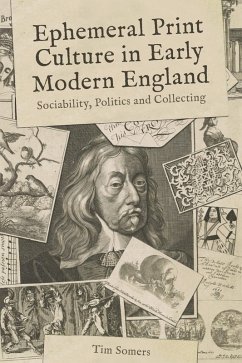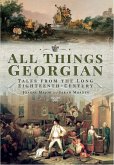Uses the collections of ephemera popular in the late seventeenth century as a way to understand the reading habits, publishing strategies and thought processes of late Stuart print culture.
Cheap' genres of print such as ballads, almanacs and playing cards were part of everyday life in seventeenth-century society - ubiquitous and disposable. Toward the end of the century, however, individuals began to preserve, arrange and display articles of cheap print within carefully curated collections. What motivated this sudden urge to preserve the ephemeral? This book answers that question by analysing the social, political and intellectual factors behind the formation of cheap print collections, how these collections were used by their owners, and what this activity can tell us about 'print culture' in the early modern period.
The book's central collector is John Bagford (1650-1715), a shoemaker who became a dealer of prints and other 'curiosities' to important collectors of the time such as Samuel Pepys, Hans Sloane and Robert Harley. Bagford's own rich and largely unstudied collection is afascinating study in its own right and his position at the centre of commercial and intellectual networks opens up a whole world of collecting. This world encompasses later Stuart partisan political culture, when modern parties and the 'public sphere' first emerged; the 'New Science' and 'virtuoso culture' with its milieu of natural philosophers, antiquaries and artisans; the aural and visual landscape of marketplaces, streets and alehouses; and developing practices of record-keeping, life-writing and historical writing during the long eighteenth century.
Cheap' genres of print such as ballads, almanacs and playing cards were part of everyday life in seventeenth-century society - ubiquitous and disposable. Toward the end of the century, however, individuals began to preserve, arrange and display articles of cheap print within carefully curated collections. What motivated this sudden urge to preserve the ephemeral? This book answers that question by analysing the social, political and intellectual factors behind the formation of cheap print collections, how these collections were used by their owners, and what this activity can tell us about 'print culture' in the early modern period.
The book's central collector is John Bagford (1650-1715), a shoemaker who became a dealer of prints and other 'curiosities' to important collectors of the time such as Samuel Pepys, Hans Sloane and Robert Harley. Bagford's own rich and largely unstudied collection is afascinating study in its own right and his position at the centre of commercial and intellectual networks opens up a whole world of collecting. This world encompasses later Stuart partisan political culture, when modern parties and the 'public sphere' first emerged; the 'New Science' and 'virtuoso culture' with its milieu of natural philosophers, antiquaries and artisans; the aural and visual landscape of marketplaces, streets and alehouses; and developing practices of record-keeping, life-writing and historical writing during the long eighteenth century.
Dieser Download kann aus rechtlichen Gründen nur mit Rechnungsadresse in A, D ausgeliefert werden.









